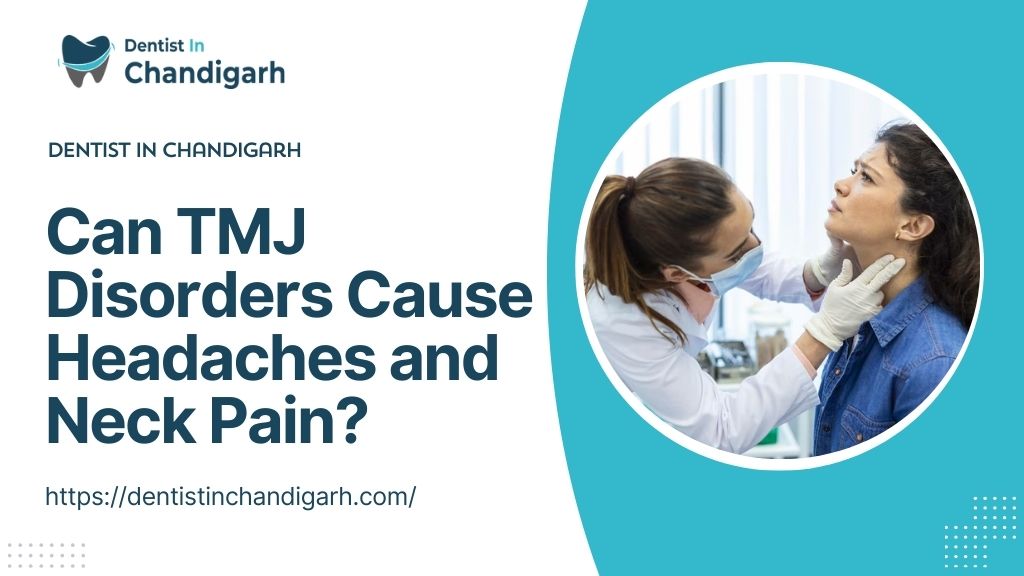Do you often wake up with a sore jaw, pounding headache, or pain in your neck? While stress or poor sleep might seem like the cause, the real issue could be your jaw joint.
The temporomandibular joint (TMJ) connects your lower jaw to your skull and plays a key role in talking, chewing, and yawning.
When this joint is strained or damaged, it can lead to a range of painful symptoms — not just in your jaw, but also in your head, neck, and even shoulders.
TMJ disorders are often overlooked but can seriously affect your comfort. In this article, we’ll explore how TMJ disorders cause pain and how to manage them.
What Is the TMJ and What Does It Do?
The TMJ is the joint that connects your lower jaw (mandible) to the side of your skull. You have one on each side of your face, just in front of your ears.
These joints work like sliding hinges and allow you to open and close your mouth. You use them when you eat, talk, yawn, or even smile.
Because they’re used so much, the TMJ is one of the most active joints in your body. And just like any other joint, it can develop problems.
How TMJ Disorders Affect Your Body
A TMJ disorder happens when there’s a problem with the joint itself or the muscles around it. This could be due to an injury, arthritis, grinding your teeth, or even stress that makes you clench your jaw.
When the joint isn’t working right, the nearby muscles can get sore. This tension can spread to other parts of your head and neck.
The pain may start in the jaw, but it often doesn’t stay there. You might feel it in your temples, behind your eyes, in your neck, or even in your shoulders.
Headaches Caused by TMJ Disorders
One of the most common signs of a TMJ problem is frequent headaches. These often feel like tight, squeezing pain around your forehead or the back of your head.
This happens because the jaw muscles are closely connected to the muscles in your head.
When your jaw muscles are always working — for example, from clenching or grinding your teeth — they get tired and sore.
This sends pain signals to your brain. Sometimes, TMJ-related headaches are confused with migraines. But while migraines often come with nausea or light sensitivity,
TMJ headaches usually feel more like tension or pressure.
Joint inflammation can also irritate nearby nerves, adding to the pain. If your headaches always come with jaw pain or clicking, your TMJ could be the cause.
Neck Pain and TMJ Disorders
Neck pain is another common problem linked to TMJ disorders. When your jaw is out of alignment or under stress, the muscles in your neck can become tight and overworked.
This tension leads to stiffness and aching in the upper neck and even the shoulders.
Poor posture can make this worse. For example, if you spend a lot of time leaning forward at a desk or looking down at a phone, your jaw and neck muscles work harder than they should.
If your TMJ is already strained, these habits can increase the pain. A qualified dentist in Chandigarh can help identify the issue and suggest effective treatment options for lasting relief.
Other Common Symptoms of TMJ Disorders

TMJ disorders don’t just cause head and neck pain. Here are some other symptoms you might notice:
- Clicking or popping sounds when opening or closing your mouth.
- Pain in or around the ear, but not caused by an ear infection.
- Locked jaw, where your mouth gets stuck open or closed.
- Facial pain, especially near your cheeks and jawline.
- Tired feeling in the jaw, especially after chewing.
- Dizziness or balance issues, because of how close the TMJ is to the inner ear.
These signs, along with headaches and neck pain, are clear warnings that your jaw joint needs attention.
Who Is at Risk for TMJ Disorders?
TMJ problems can affect anyone, but some people are more likely to get them. This includes:
- People who grind or clench their teeth, especially during sleep.
- Those who are often under stress.
- People with arthritis, which can affect joints all over the body.
- Anyone with a jaw injury or past dental surgery.
- Teenagers or adults with poor posture, especially from screen time.
Even habits like chewing gum too often or biting your nails can lead to jaw strain.
How Dentists Diagnose TMJ Disorders
If you think you have a TMJ disorder, your dentist or doctor can help. They’ll start by asking about your symptoms and feeling your jaw as you open and close your mouth. They may listen for clicks or pops and check how wide you can open your jaw.
In some cases, they might use X-rays, CT scans, or MRIs to get a better look at your joint and muscles. This helps them see if the bones are misaligned or if there’s inflammation.
TMJ Treatment Options
The good news is that most TMJ disorders can be managed without surgery. Early TMJ Treatment often starts with small changes you can make at home, like:
- Eating soft foods to rest the jaw.
- Applying ice or heat packs to reduce pain.
- Doing gentle jaw exercises.
- Avoiding wide yawns or chewing gum.
If these don’t help, your dentist might suggest more targeted care, such as:
- A mouthguard to stop grinding or clenching during sleep.
- Physical therapy to strengthen jaw and neck muscles.
- Pain relief medications or anti-inflammatory drugs.
In rare cases, if the problem is severe, surgery might be recommended. But that’s usually the last option after trying everything else. Regular TMJ Treatment can often prevent symptoms from getting worse.
When to See a Professional
If your headaches or neck pain aren’t going away — or if you notice jaw clicking, stiffness, or locking — it’s time to get help. TMJ problems don’t always go away on their own. Ignoring them can make things worse over time.
A dentist who understands jaw issues can help you find the right treatment and give you tips to manage the pain. The earlier you get care, the easier it is to treat the problem.
How to Prevent TMJ Problems
Even if you’re not having pain now, there are ways to protect your jaw:
- Don’t clench your teeth during the day. Keep your lips closed and teeth slightly apart.
- Use stress management techniques like deep breathing or meditation.
- Cut back on chewing gum or hard foods like nuts or ice.
- Sit up straight, especially when using a computer or phone.
- Sleep on your back with a supportive pillow under your neck.
Simple habits can go a long way in keeping your jaw and neck feeling good.
Conclusion
TMJ disorders are a common but often missed cause of headaches and neck pain.
Your jaw joint may be small, but it plays a big role in your daily comfort.
When the joint isn’t working properly, it can cause tension that spreads through your head, neck, and shoulders.
If you notice jaw pain, popping sounds, or frequent headaches, don’t ignore them. Getting help early and starting the right TMJ Treatment can bring real relief.
Simple steps like relaxing your jaw, reducing stress, and visiting a dentist can go a long way.
You don’t have to live with daily pain — the solution might be just one dental visit away.


